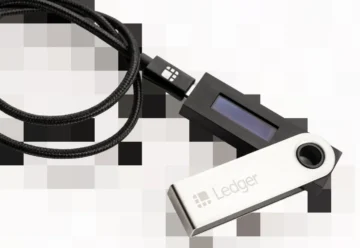SEC Attacks on Crypto Exchanges Could Negatively Affect DeFi Sector

The chairman of the U.S. Securities and Exchange Commission (SEC) revealed that the agency would continue regulating the industry through enforcement. Members of the cryptocurrency community voiced concerns over the impact of the regulator’s actions on the DeFi sector in the U.S. and a willingness to defend their interests in court if the need arises.
Gary Gensler, Chairman of the SEC, urged crypto exchanges to undergo mandatory registration with the agency in order to comply with laws in the United States. The chairman announced it in an interview with CNBC.
According to Gensler, the business models of many crypto projects in the market are “rife with conflicts,” and crypto exchanges “have their hand in the customers’ pocket” and use their funds for their own needs. The SEC chairman claims the regulator plans to “disentangle these bundled products.”
Against the backdrop of the SEC’s recent dispute with Kraken, such a call from the regulator’s head sounded like a warning. Recall that the SEC accused the exchange of law violations and forced it to shut down its crypto staking program for U.S. users and pay a $30 million fine.
The message to follow the law was negatively received by the industry. Lido DAO members were concerned about the potential impact of the SEC’s actions on the U.S. DeFi sector. According to Jacob Blish, Head of Business Development at Lido DAO, the regulator’s attacks on crypto companies could result in American citizens being unable to interact with any platforms that provide staking or crypto lending services. The lack of users would lead to the imminent demise of the entire DeFi sector in the United States.
Representatives of the cryptocurrency exchange Coinbase also criticized the regulator’s threats. Brian Armstrong, CEO of Coinbase, stated the company was ready for a lawsuit if the regulator made such accusations against Coinbase. Paul Grewal, Chief Legal Officer at Coinbase, detailed on the company’s blog why the platform’s services couldn’t be subject to the regulator’s scrutiny and why staking wasn’t securities manipulation, as the SEC argued.
However, the SEC keeps moving to regulate the industry through enforcement. For example, the regulator continued its pressure on the cryptocurrency exchange Binance. Paxos Trust Co., a crypto firm Binance announced a partnership with in 2019 to release the BUSD stablecoin, came under attack by the SEC.
The Wall Street Journal report says the SEC plans to sue Paxos over Binance USD. The regulator claims that BUSD is an unregistered security. However, the SEC’s true intentions regarding Paxos remain unknown. Meanwhile, the New York Department of Financial Services (NYDFS) ordered Paxos Trust Co. to stop issuing the BUSD token. Binance representatives quickly stressed that BUSD was issued and owned by Paxos, and the crypto exchange only licensed the brand.
Ripple Labs leads the biggest “battle for the crypto industry” with the SEC. After several years of confrontation, there’s a chance that the department will be deprived of the authority to make any decisions about regulating the cryptocurrency market.











